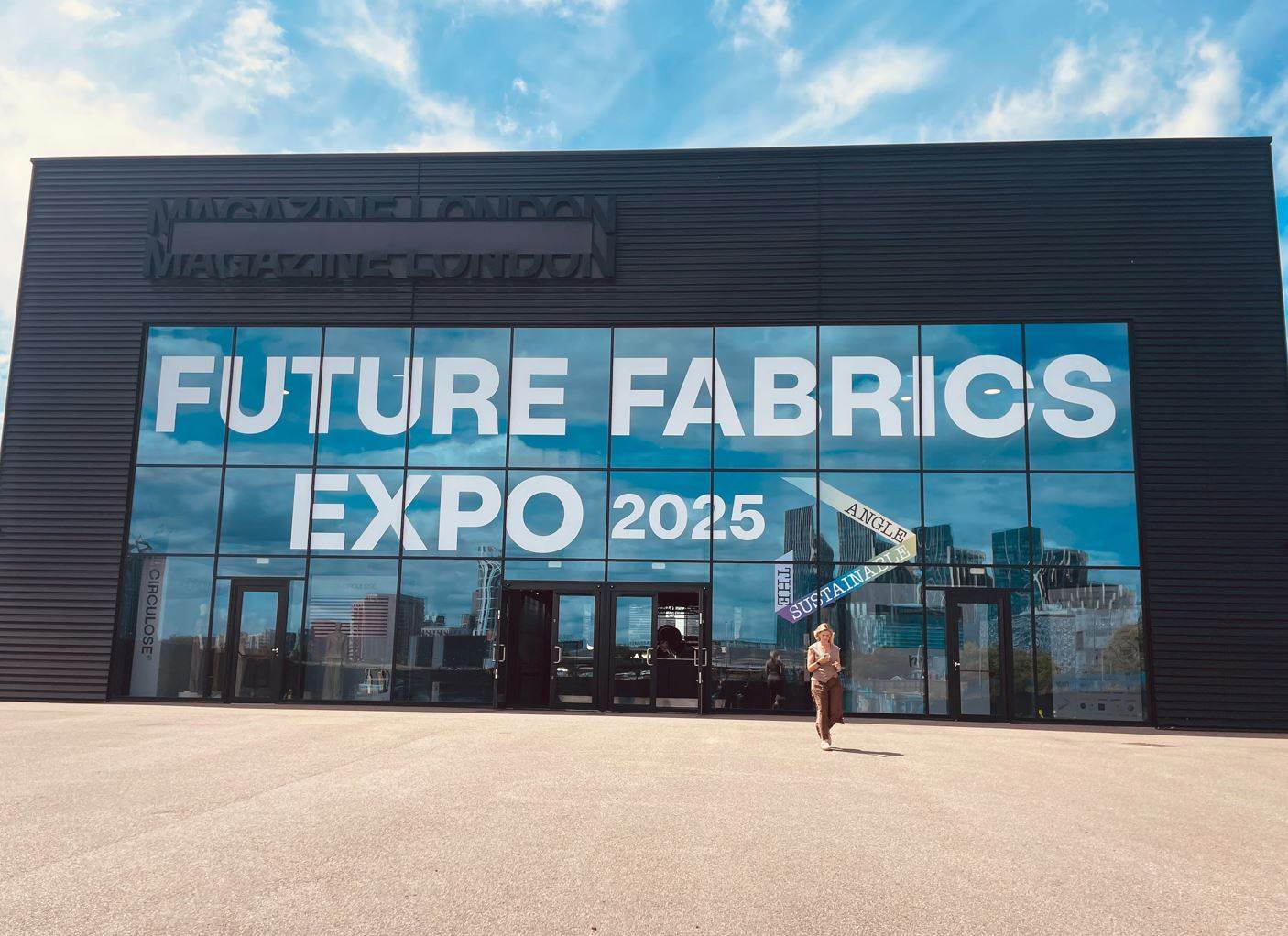Future Fabrics creates a space for forward thinkers

Future Fabrics Expo has wrapped up a busy couple of days in London, with exhibitors commenting it had seemed busier than previous years, particularly on the first morning.
The show, which bills itself as a responsible sourcing platform rather than a traditional trade show, seeks to present textiles with a lower footprint, offering more sustainable alternatives to conventional cotton and virgin polyester, which make up the majority of the world’s textiles.
Show organiser The Sustainable Angle confirmed more than 2,000 visitors, ranging from the luxury brands through to mass market, smaller brands and students, visited the show to view established companies’ latest developments and start-ups’ fresh ideas.
EU regulations were top of mind – how these are becoming drivers for brands to adopt more responsible materials or sourcing strategies – although the backtracking on the Green Claims Directive, announced by the European Commission at the start of the week, could potentially have an impact. Tariffs, too, as well as uncertainty in the macroeconomic environment, weighed on sourcing decisions, said some exhibitors, and the need for investors to provide the capital for start-ups was discussed during seminars as well as at an investors’ meeting.
Austrian fibre company Lenzing presented a synthetic-free tapes solution as well as collaborations with footwear brands, which had produced compostable or easier to recycle trainers (we will expand on this in a separate story).
Using waste as a feedstock was again a big topic, with representatives from Spinnova and Ambercyle discussing their business models. Kenji Higashi of Spiber explained how the company uses proteins mainly from sugar cane close to its production facility in Thailand, but could one day pivot to using textiles waste as a feedstock.
Regenerative agriculture and climate change were big topics again this year, with LVMH sponsoring an area dedicated to providing information around the practices, as well as taking part in panels.
Amanda Sturgeon updated the audience on a programme The Biomimicry Institute is running with the OR Foundation and Laudes Foundation to validate how bacteria could be added to the waste textiles that have no value, to help break them down as an alternative to incineration.
RE&UP hosted a breakfast session titled 'Yesterday’s garments, today’s raw materials – what’s holding us back?' Moderated by RE&UP’s senior PR & marketing manager Keith O’Brien, the panel featured Nienke Steen (Cradle to Cradle Products Innovation Institute) and Priyanka Khanna (Fashion for Good), who shared insights into the systemic and technical challenges preventing textile-to-textile recycling from scaling, and what’s being done to solve them.
UKFT’s Lauren Junestrand gave an update on a multiyear programme looking at where the gaps are in the UK’s textiles recycling infrastructure, with pilots including one with LaundRE, the new denim education, sampling and refinishing hub which will open soon in Canning Town. Through the Circular Fashion Innovation Network (CFIN), the idea is that there will be a circular blueprint that could be applied to several ‘apparel park’ style set-ups that could be established around the country.
Insulation provider Thermore presented its 100% recycled PET insulation offering EcoDown Fibers Sync, while natural dye providers AO Textiles and Green’ing from France told us how they produced colours using agricultural waste as well as local trees and flowers.
Among start-ups and novel ideas on display around the show were materials made from algae foam, corn, biobased plastics, with performance attributes mimicking those of spiders, bees and squid.
Sportstextiles will cover stories from the show in more detail over the coming days.











